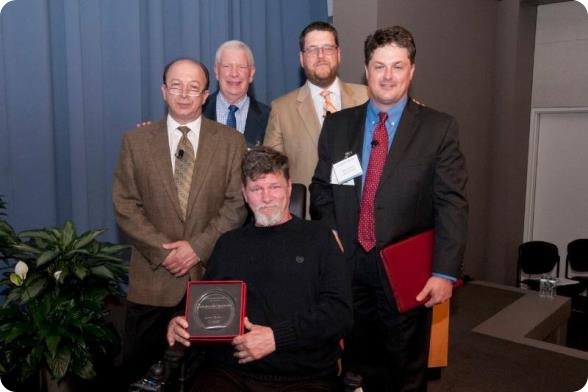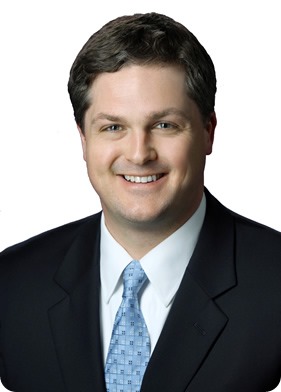ALS stands for Amyotrophic Lateral Sclerosis, better known as “Lou Gehrig’s Disease”. It is a progressive neurodegenerative disease characterized by the death of motor neurons in the brain and spinal cord. The death of motor neurons leads to the loss of muscle function, paralysis, and – ultimately – death. Most patients die within 2-4 years from the onset of symptoms, often from respiratory complications.
As motor neurons die, persons with ALS begin to lose muscle function. As ALS progresses, patients lose the ability to do things that so many people take for granted: stand, walk, grasp objects or work with your hands, speak, swallow, eat…even breathe.
Who does ALS affect and how much evidence is there to suggest a higher occurrence of ALS among veterans?
ALS usually strikes in late middle age (in the 50’s is average) but can affect any adult, regardless of age, gender, race, or socio-economic factors. In the US, approximately 5 to 6 thousand people per year are diagnosed with ALS, without approximately 30 thousand living with the disease at any one time.
The incident rate among veterans is approximately twice the rate of the non-veteran population; the Veterans Administration considers ALS to be a “presumptive condition” tied to military service for any veteran has had 90 days or more of continuously active service in the military.
What is known about the causes of ALS?
At this time, we still know little about the causes of ALS. In hereditary or “familial” cases of the disease, which represent approximately 5-10% of all cases, many of the genetic mutations and factors that underlie the disease have been identified. And new genetic factors are continually emerging.
Sometimes these genetic factors are also responsible for instances of ALS where there is no known family history of disease at all – in those cases that are considered “sporadic” ALS. In the majority of cases, however, the cause of ALS remains a mystery.
Could you please give an overview of the partnership Veterans Advancing ALS/MND?
Veterans carry a heavy burden with ALS, and represent an opportunity to engage a specific population of ALS patients – veterans – in a focused way. The goals are to: 1) Make sure that veterans with ALS get the benefits that have earned through military service; 2) Encourage and facilitate participation from Veterans in research and trials that may be suitable; and 3) Use the cutting edge of science and technology to help understand ALS in Veterans by bringing, for example, growing knowledge in the use stem cells and genetics to better develop highly individualized therapy approaches to treating ALS.

Veterans Advancing ALS/MND recently won Sanofi US’ second Innovation Challenge: Collaborate Innovate. What did this challenge involve?
The theme of this year’s Sanofi Collaborate Innovate Challenge (www.collaborateinnovate.com) was “Co-creating for Breakthroughs: Moving toward a collaborative research and development ecosystem”. It called for partnering organizations to imagine new approaches for translating patient insights into improvements in the drug development process.
ALS patients are, in general, eager to see acceleration in the process of taking the discoveries made in basic science and ultimately translating those insights into therapies. There is only one drug on the market to treat ALS, and it can extend life by a few months, so there is urgency and great interest on the part of all the stakeholders to see the process work better and faster.
Veterans with ALS, though, present a unique opportunity for engagement. They are eligible for certain benefits by virtue of having served in the military. They have a very high affinity to one another as veterans, and already share a bond that extends beyond ALS. They carry a higher burden from the disease because, for whatever reason, the incidence rate of ALS is higher among vets. They understand the importance of “mission” and how to rally to a cause.
In short, our partnering organizations (the Innovative Solutions Consortium and the Robert Packard Center for ALS Research) felt we had determined a group that could be identified, engaged, and for whom strides could be made through a highly focused approach to their particular needs, and the research opportunities we envisioned.
One of the great challenges we had was to boil down the opportunity we saw into something that could be communicated in a few minutes (8 minutes!), that was readily understandable, and that was a compelling case for support. The competition, after all, was just that: a competition. And we were competing against other very important and compelling ideas.
Sanofi's Partners in Patient Health and North America Research & Development Hub Collaborate Innovate Challenge brought together an extraordinary and diverse mix of people, all with the shared commitment to improve patient health.
We were fortunate to receive mentorship from Sanofi’s team members and functional experts in business strategy, marketing and communications, systems thinking, decision sciences, and healthcare venture capital, drawing on cooperative insights to help us refine our solution before presenting it to the judges. As a result, we did manage to boil down our idea and concept into what we now call “OperationALS”.
What impact will this win have?
The win has already had a significant impact. The acknowledgment from Sanofi that our idea has both merit and is compelling – that in itself legitimates the idea and the goal.
In a very practical sense, the financial reward provides some of the seed funding needed start building out on the idea, and attract further follow-on funding.
The recognition and visibility gained for the project by the win is also of enormous value, thanks to the partners and friends that this draws to the mission. What we proposed is ambitious, and the win is a great start to getting the work rolling.
What are Veterans Advancing ALS/MND’s plans for the future?
Our “OperationALS” website is now live, and we are working with a potential new partner on the implementation of the underlying technology to register veterans with ALS using a proven and secure platform. That would allow us to not only help them ensure they’re getting the benefits and services that they’re eligible for, but would allow us to also gather much needed information on them about their disease, and provide a platform for communicating with them about different ways they can be engaged and participate in research.
We’re also already working on ways to bring together the voluminous information that exists about veterans. On the marketing and communication side, in August and September a short video piece that will appear about “OperationALS” in first and business class aboard all the flights of a major US airline carrier. And, since the work we want to do will involve significant philanthropy, we are using the win to not only build out our idea but also in the narrative that we can share with potential donors and funders to the mission.
How important do you think open innovation will be in the future of ALS research?
Very important. ALS is dauntingly complex. No one single lab, or investigator, or institution, or organization will find “the answer”, but collaboration offers a great path forward to making the most of everyone’s work. And when you add to that an openness to innovation and new ideas, and can effectively incorporate the patient voice and patient insights into that process, you increase the likelihood that valuable insights will be found.
The past several years have seen enormous strides made in developing a better understanding of the disease, as well as building the tools to further research. We hope that OperationALS, by effectively engaging a subset of the ALS population, will represent one model – a thoughtful productive experiment – of what can be achieved.
Where can readers find more information?
More information about the working being done, and the “OperationALS” campaign that embodies the goals and mission of Veterans Advancing ALS/MND, can be found at “OperationALS” website.
About Milan Michael Karol
 Milan Karol brings a decade of fundraising and development experience to his work with the Robert Packard Center for ALS Research at Johns Hopkins, whose motto “The Hope is in the Science” represents the organization’s commitment to collaborative research with leading investigators around the world in the quest to solve ALS. He can be reached at [email protected].
Milan Karol brings a decade of fundraising and development experience to his work with the Robert Packard Center for ALS Research at Johns Hopkins, whose motto “The Hope is in the Science” represents the organization’s commitment to collaborative research with leading investigators around the world in the quest to solve ALS. He can be reached at [email protected].